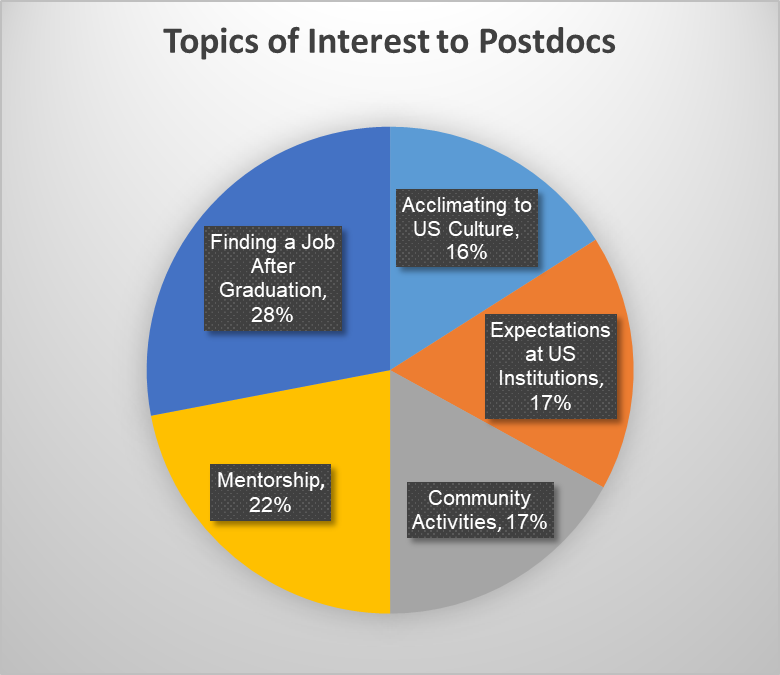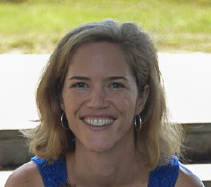
Blog
Improving Duke for International Students and Postdocs

Moving from one country to another comes with the challenge of adjusting to new cultural values and becoming part a new community, especially when you’re pursuing a graduate degree or postdoctoral training at the same time.
As part of the Emerging Leaders Institute, our interdisciplinary team looked for a way to improve the Duke environment for graduate students and postdocs. Our group was certainly interdisciplinary, and international, as two of us came to Duke from outside the United States. Based on the topics raised in the stakeholder interviews we conducted before the program, as well as our personal experiences, we identified integration of international graduate students and postdocs as an area for growth in the Duke community and chose this as our topic to address.
Fortunately, we had a starting point from which to build our program. During the graduate student orientation for international students hosted by International House, there’s a popular session called “I Wish I Knew.” In this session, panelists give short presentations and answer questions from new students, which fosters community and helps with the adjustment period. Using this as a model on which to build a growing interdisciplinary network, our proposal was to hold these sessions more frequently and to invite speakers with a broader range of topics and experience. However, in order to optimize interest and participation we needed to know what times and topics would draw the largest audience. Our first step was to solicit input from international graduate students and postdocs through an online survey.
By sharing the survey via email, in person, through personal connections, and with flyers at events of interest to international students, we received 49 total responses, including 41 graduate students and 8 postdocs. We found that most of the respondents had been at Duke for one year or less. We then asked how integrated they currently felt into the Duke community. Among postdocs, many reported feeling moderately well integrated, but 12% still reported not feeling well integrated into the Duke community; among graduate students, 61% reported feeling either poorly or only slightly integrated. This was somewhat surprising, and it revealed the need for more networking and community building programs and opportunities for international graduate students and postdocs at Duke.
In order to gauge how often respondents were taking advantage of current offerings, we asked how many workshops they had attended. We found that the majority of respondents attended 1-2 workshops per year designed for international students, and the majority showed high interest in attending these workshops. However, 25% of graduate students and 29% of postdocs did not attend any workshops. This suggested that while there was an audience for workshops they were not reaching everyone, and that greater numbers of graduate students and postdocs might attend if they found the topics more compelling.
We were able to identify several topics of interest and found similar levels of interest in the same topics among graduate students and postdocs, suggesting that workshops around these topics would attract both groups.


Our other survey questions focused on timing during the week, preferred duration of sessions, and preferred leaders or facilitators, and we incorporated these responses into our recommendations.
Based on our survey results, we recommend that the “I wish I knew” workshops occur on weeknights, every month or every other month, for 1-2 hours. There was interest in workshops facilitated by graduate students, postdocs, faculty, and Duke alumni. This means that there is a strong, sizable group of potential speakers from which to recruit. General topics should include finding jobs and building strong mentor-mentee relationships, as these were the top topics of interest to our respondents. Additionally, based on personal experience and stakeholder interviews, we believe it would be helpful to address how to develop networking skills, since there may be cultural differences from the home countries of students.
We presented our findings to staff at International House. This unit’s mission includes providing “educational programs, services, and advocacy to the Duke global community,” and they are the best fit for the implementation of these recommendations. It is our hope that workshops, framed as “I wish I knew” sessions that include networking and community building, will increase the integration of international graduate students and postdocs into the Duke community.
Author

Margaret Gruen, D.V.M., Ph.D.
Postdoctoral associate, Evolutionary Anthropology
Margaret Gruen is a postdoctoral associate in Evolutionary Anthropology. She is a veterinarian, with board-certification in Veterinary Behavior, and also holds a PhD in Comparative Biomedical Sciences.

Juliane Totzke, Ph.D.
Recent Ph.D. graduate, Pharmacology and Cancer Biology
Juliane Totzke recently received her Ph.D. in Pharmacology. Her dissertation focused on the biochemical characterization of a small molecule inhibitor of TAK1, a protein that has been identified to play a role in cancer metastasis and the pathogenesis of rheumatoid arthritis.

Wanxin Yuan
Master's student, Electrical and Computer Engineering
Wanxin Yuan is a master's student in Electrical and Computer Engineering. She is currently working to combine traditional electric motors with advanced data mining techniques, and to design novel electric motor drives with higher efficiency and better performance.